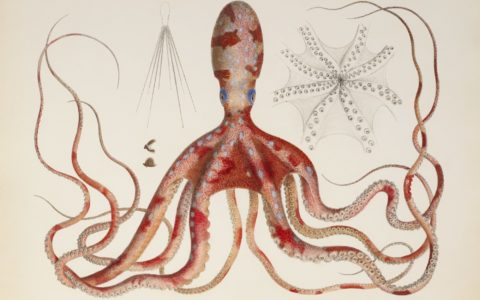The Irene Manton Prize
Two prizes of £500 and a piece of fine art for the best doctoral thesis in botany (algae, fungi or plants), as judged by a paper published in the Linnean Society Journals.
Awarded for the best thesis in botany examined for a doctorate of philosophy, as judged by a paper published in one of the Linnean Society's journals. It is open to papers contributing to a PhD thesis, and published with the PhD student as first author.
Enter the prize by submitting a paper to a Linnean Society journal.
Eligibility Criteria
- The paper must be published in advanced access in one of the Linnean journals in the calendar year prior to the award year.
- There must be no more than two years between the date of submission to the journal (aka the date that the work is being submitted for assessment for the award) and the date that the thesis was awarded. Ongoing work that is being carried out by the PhD student but has not yet been submitted as a thesis is eligible, as it is considered not to have exceeded the two-year window.
- The paper must go through the peer review system and be accepted for publication (i.e. prize submissions that are not accepted for publication will be ejected).
- There must be confirmation from the PhD supervisor that the work has been carried out by the student.
- In the case of a multi-author paper, the PhD student must be the first author, and the supervisor must confirm the contribution the student has made.
- The nominated student cannot, at the time of nomination, be a member of the Linnean Society Council, or a family member.
Irene Manton Prize Recipient 2025

Dr Jamie B. Thompson
‘I was astounded and humbled receive the Irene Manton Prize. Studying evolution is a lifelong dream and has proven to be great fun. It is a joy to reveal how unassuming plants adapt to changing environments. I feel so grateful to be recognised for work that excites me every day. This wouldn’t have been possible without the support and encouragement of so many people, including my supervisor Dr Nick Priest, mentors Professor Julie Hawkins and Dr Santiago Ramírez-Barahona (among others), my family, friends and fiancé Georgia. Thank you all!’
Dr Jamie B. Thompson’s thesis, ‘Tempo and drivers of angiosperm diversification’, is a worthy winner of this year’s Irene Manton Prize. Jamie’s research into the explosive diversification of angiosperms (flowering plants) is revolutionising our understanding of plant biodiversity. He has demonstrated a previously unknown link between Cenozoic global cooling and diversification rates in orchids, proving that Charles Darwin’s idea of gradual evolution was 700 times less likely to drive diversification than historic global cooling. Jamie’s work has also combined machine learning and phylogenetic inference to identify biotic and abiotic forces driving diversification in cacti, while other research has overturned the assumption that plant species were wiped out by the asteroid that killed the dinosaurs, and tested the role of aridity in driving diversification of succulents.
Previous Recipients of the Irene Manton Prize
- Dr Tin Hang (Henry) Hung (2024)
- Dr Brogan Harris (2023)
- Dr Bruno Pok Man Ngou (2022)
- Dr Sophie Harrington (2021)
- Dr James Clark (2020)
- Dr Leanne Melbourne (2019)
